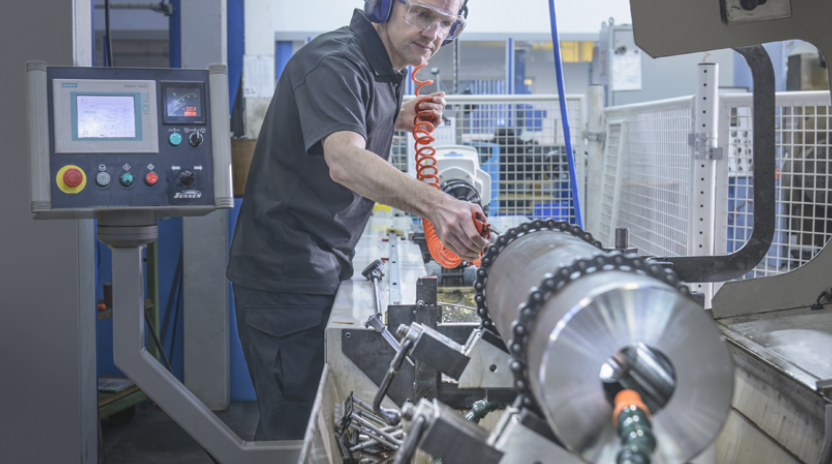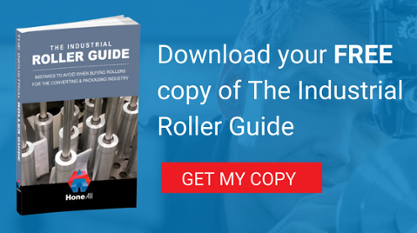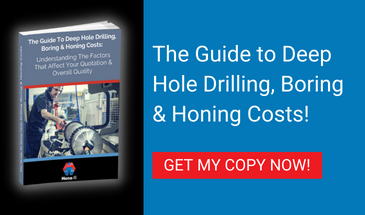
Precision rollers must be designed and constructed to precise specifications, as the exacting demands of each system or application can vary enormously. Attention to detail is, therefore, essential and, because it can be difficult to establish the specification required, a thorough understanding of the application - backed by the professional experience of the precision engineer - will help to deliver the perfect solution.

When you’re determining the specifications of a precision roller, consider the following to ensure you obtain the best match for your system and application:
1) Application.
Understanding the application in which the precision roller will be used is crucial to achieving the optimum design. For example, special bearings may be necessary if the roller is to be used in high-temperature environments, such as commercial ovens, while rollers intended to produce surface coatings need finer finishes and critical concentricity.
2) Material.
Typically, stainless steel, carbon steel, aluminium, or carbon fibres are used in precision roller manufacturing. The material should be chosen with the advantages and disadvantages of each material in mind. For example, steel rollers offer exceptional durability and strength but, in some applications, are subject to corrosion. Stainless steel delivers high levels of performance but is more expensive than other materials.
3) Surface Finish.
In general, the finer the surface finish of a roller, the more expensive it will be. Some surfaces are associated with other costs that aren’t always evident: rollers that are chrome-plated, for example, require grinding, while bespoke surface treatments may be necessary to overcome difficulties such as wrinkling. When discussing your requirements with the precision engineer, ensure the nature of the application is clearly explained so that the most cost-effective finish can be selected.
4) Tolerances.
Tolerance and cost are intricately linked, with tighter tolerances associated with greater expense, so the application and processes in which the precision roller will be used are critical. At high running speeds, concentricity is crucial, while you should also consider physical and geometric tolerances. Working closely with your chosen precision engineer will ensure the rollers can handle the tightest tolerances achievable within your planned budget.
5) Temperatures.
Temperature variations, even within the same production line, can influence bearings, lubricants, choice of material, and tolerances, so it’s vital that you know the highest operating temperature from the outset. In extreme heat, bearings expand and may seize, so conventional bearings may not be appropriate. Also, roller materials behave differently under heat pressure, so provide your chosen precision engineer with the relevant data to ensure the precision rollers are designed and manufactured appropriately.
Contact Hone-All For Superior Precision Rollers
If you’re seeking high quality precision rollers that are perfectly designed for the needs of your application and processes, get in touch with Hone-All. Our specialists will take the time to work with you to establish your exact needs, so that your precision rollers are cost-effective without detriment to quality.





